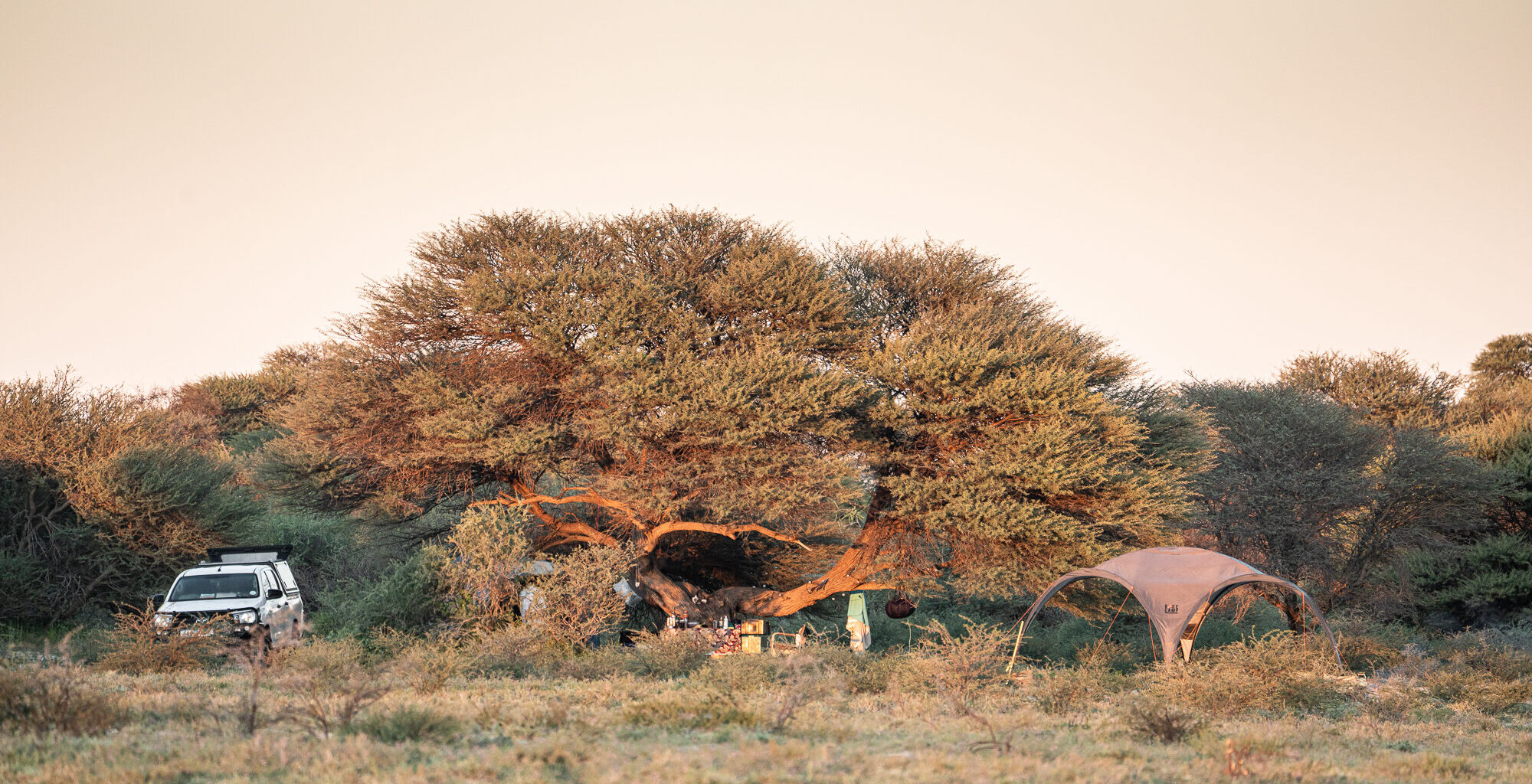After taking some time off to welcome his second child, guide and exploration specialist, Kyle de Nobrega, returns with a deeper insight into what travel experiences feel the most valuable right now. From taking his newborn daughter to the sacred landscapes of the Kalahari to reflecting on the deeper reasons we adventure, Kyle shares why the most (and truly) transformative journeys are those that interrupt our daily patterns and strip away the comfortable to reveal what we really need, and who we really are.
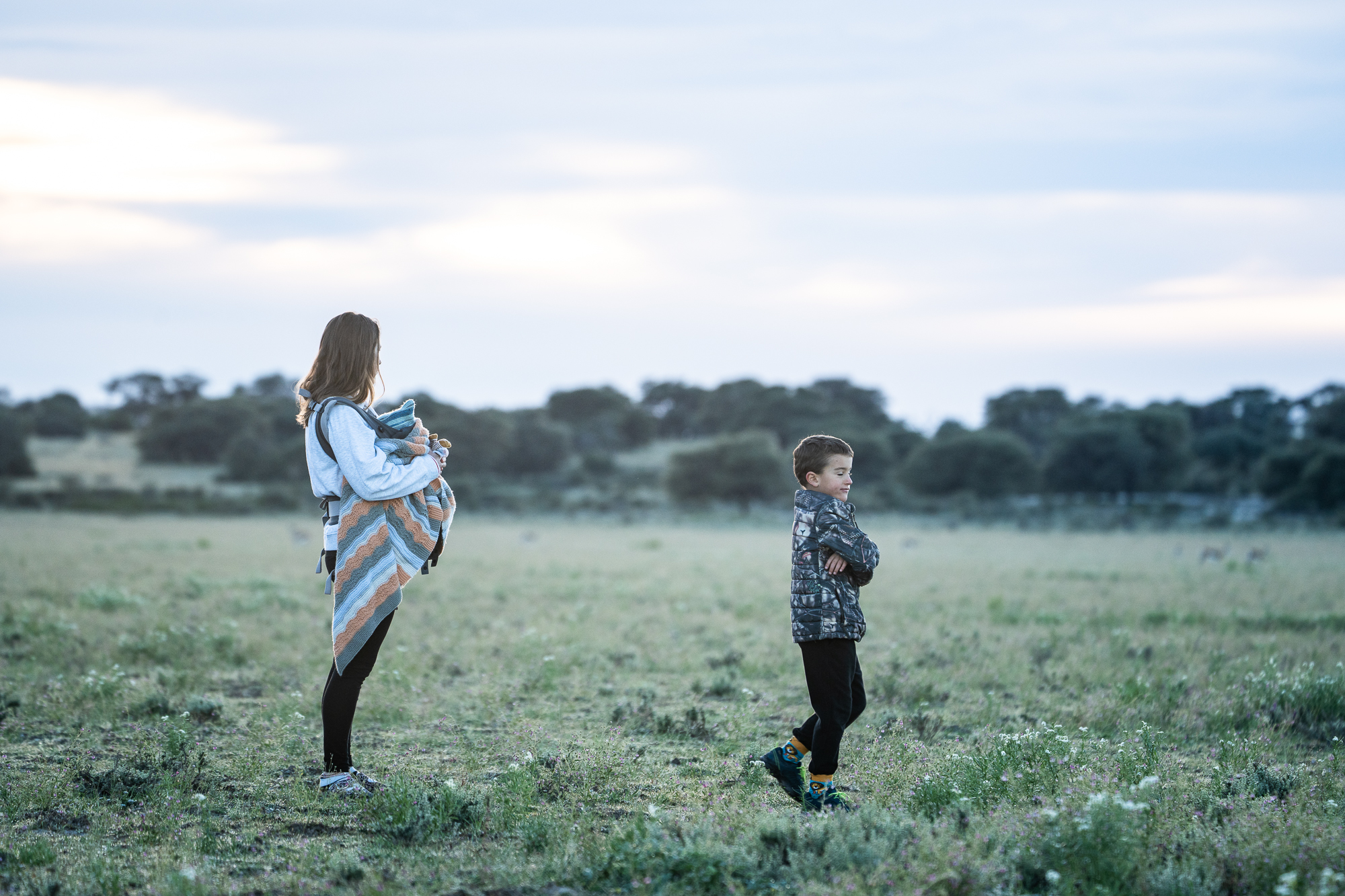
What’s been the most memorable family adventure moment since your daughter arrived?
The Kalahari is one of the most sacred places on Earth because it’s where our ancestors walked and shaped who we are today. I’ve always cherished travelling to it alone and with my family. It also remains the only place where I’ll never guide guests, as I worry that it might not have the same effect on them as it does on me. This would be an excruciating and almost disappointing thing to experience, as it’s so close to my heart.
So, taking my newborn daughter, along with my son and wife, to a completely remote spot in the Kalahari was incredibly moving. She was only six or eight weeks old at the time. We found this place where maybe only two or three travellers visit per month and set up camp for a week. There were no distractions — just the four of us and that incredible energy the Kalahari delivers so beautifully.
As for the most memorable, I honestly can’t pick one. Ranking memories feels like stealing from all the others. I’ve come to realise it’s much more about being fully present in every single moment, soaking up the pure joy and beauty of each experience with my family.
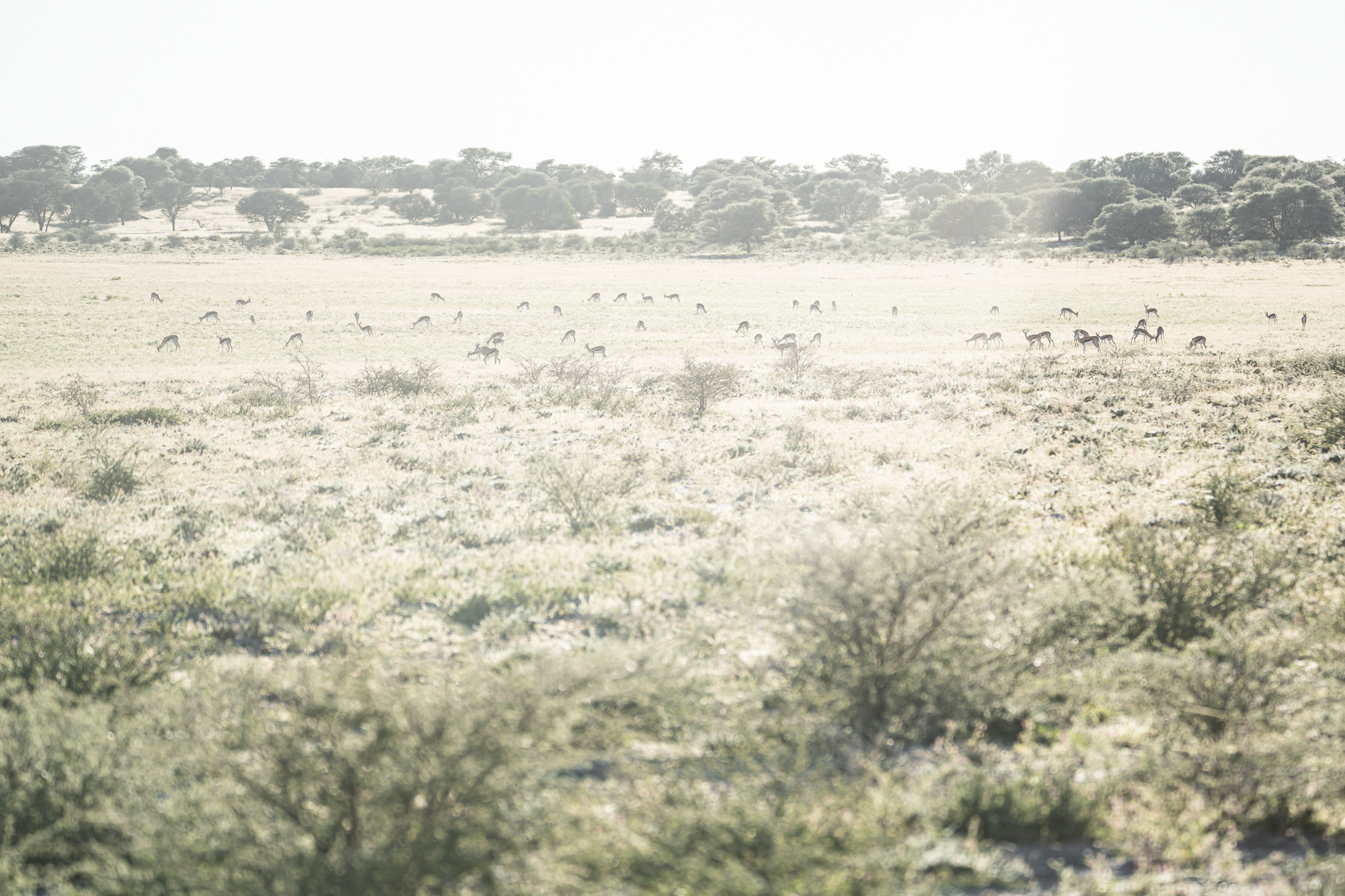
You’re a massive fan of taking children on trips. Tell us why and what judgment calls parents in general ought to make when deciding who goes where and when.
I’ve always said there’s no right or wrong age for safari, whether you’re 99 or one month old makes no difference to me, because it’s not about remembering.
Those classic safari moments — the lion under a tree, leopard on a branch, cheetah on a termite mound — they’re visually pleasing but fade with time. While powerful in the moment, they don’t linger in the heart for very long. What lasts forever are the immeasurable things: the energy of the ecosystem, the wildlife encounters, the meals shared together, the feelings of it all. These experiences add layers in ways the human eye can’t measure.
The key is placing families in the right space with the proper flow, so everyone, parents and children, can be genuinely present. It’s not about keeping people occupied for distraction’s sake, but creating experiences where special elements can penetrate through.
Before age three, traditional memories are limited, yet these early years are considered incredibly formative. A child might not consciously understand a Kalahari trip, but that enrichment will positively impact their life as they grow. It’s about designing the journey’s balance so everyone takes something meaningful away, which is so much more than just a memory of a river crossing.
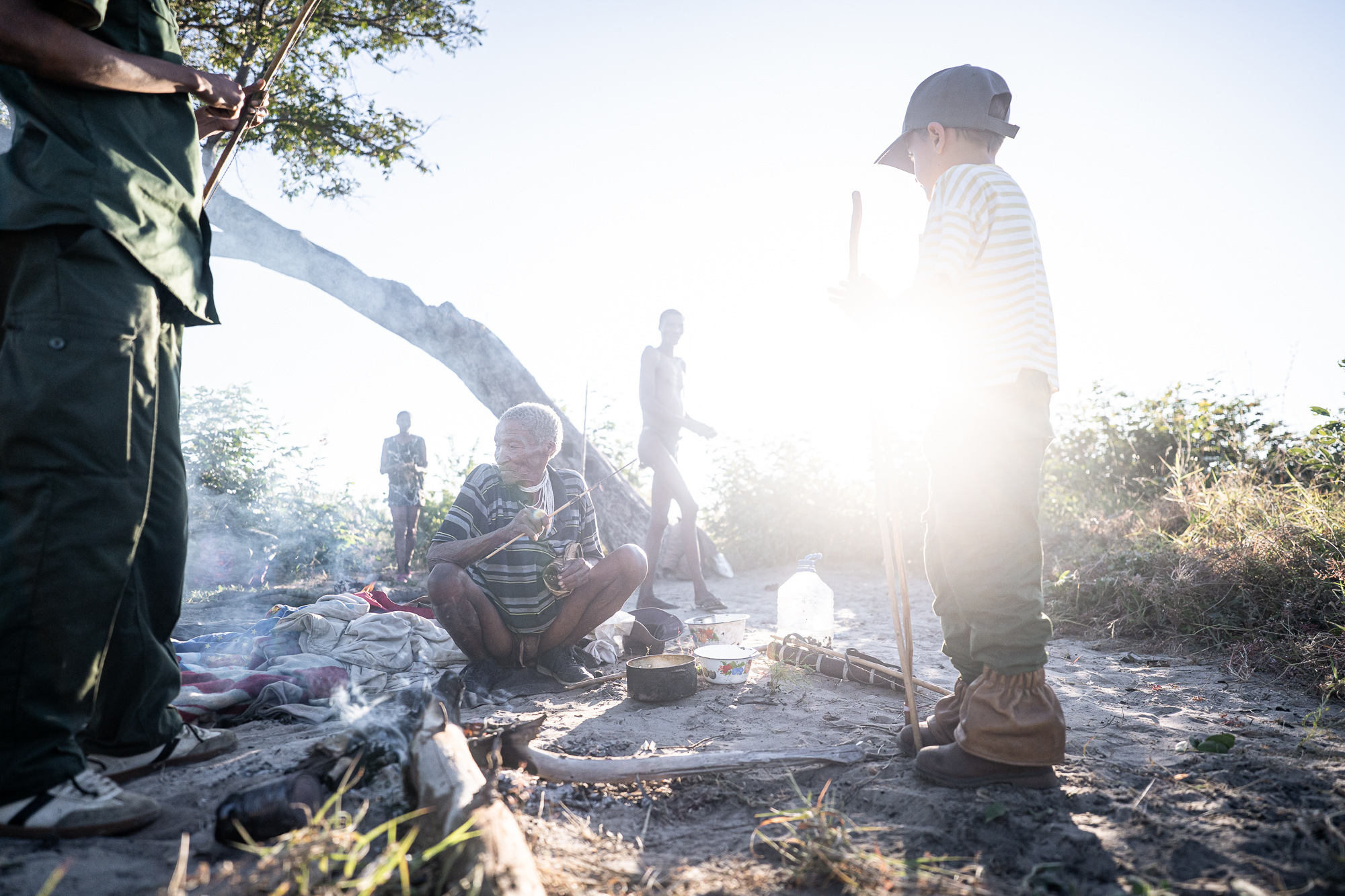

You’ve spent your career guiding others through some incredible experiences what’s it been like to take some time off and focus on this new chapter of parenthood?
As it goes, there’s much more confidence now with the second child, which has allowed for deeper insight into being present instead of worrying about what might happen or what’s already passed. This time around, I’ve really been able to quickly focus on family life and embrace something that can never be replaced or recreated (unless we have another child!).
Returning to work, I’m learning to balance time at the desk and guiding safaris with enjoying these irreplaceable moments at home. It’s been a valuable lesson in being brave enough to carve out time to create presence and simply enjoy life’s smaller moments.
I’m much more conscious of what parenthood is teaching me this time, now that there’s a calmer presence. It requires greater self-awareness and a more intentional approach to balance, not calculated in terms of control, but rather in terms of letting go of control so we can be free to live.
‘Taking this time off has reinforced one of life’s bigger lessons: being brave enough to prioritise what matters most.’
What destinations or types of experiences are you most excited to share with your daughter as she grows up?
The wildest ones! I’m excited to share trips with her that are stripped back and focused on connecting with nature, experiences that transcend material things. By going deeper and simpler, kids can hopefully discover or learn that even when you have nothing, you have everything you could ever need. That’s when you learn more about yourself, your family, and those around you because you can see more clearly.
I’m particularly looking forward to taking my family to Gabon one day. It’s a place very close to my heart. We’d find a spot where coastline meets forest, set up a comfortable base camp, and then let the forest dictate our pace. No rigid agenda saying ‘today we must do this’ or ‘we have to see that.’ Kids love beaches, so we’d have that, but the forest teaches you to go slowly, which is something we rarely experience on any safari.
Then there’s the incredible cultural side. Libreville has amazing restaurants, crafts, and powerful traditional animism and beliefs. All those colours, vibrations and frequencies that come with meeting people, letting the kids connect with other children, and living without any real rush or agenda.
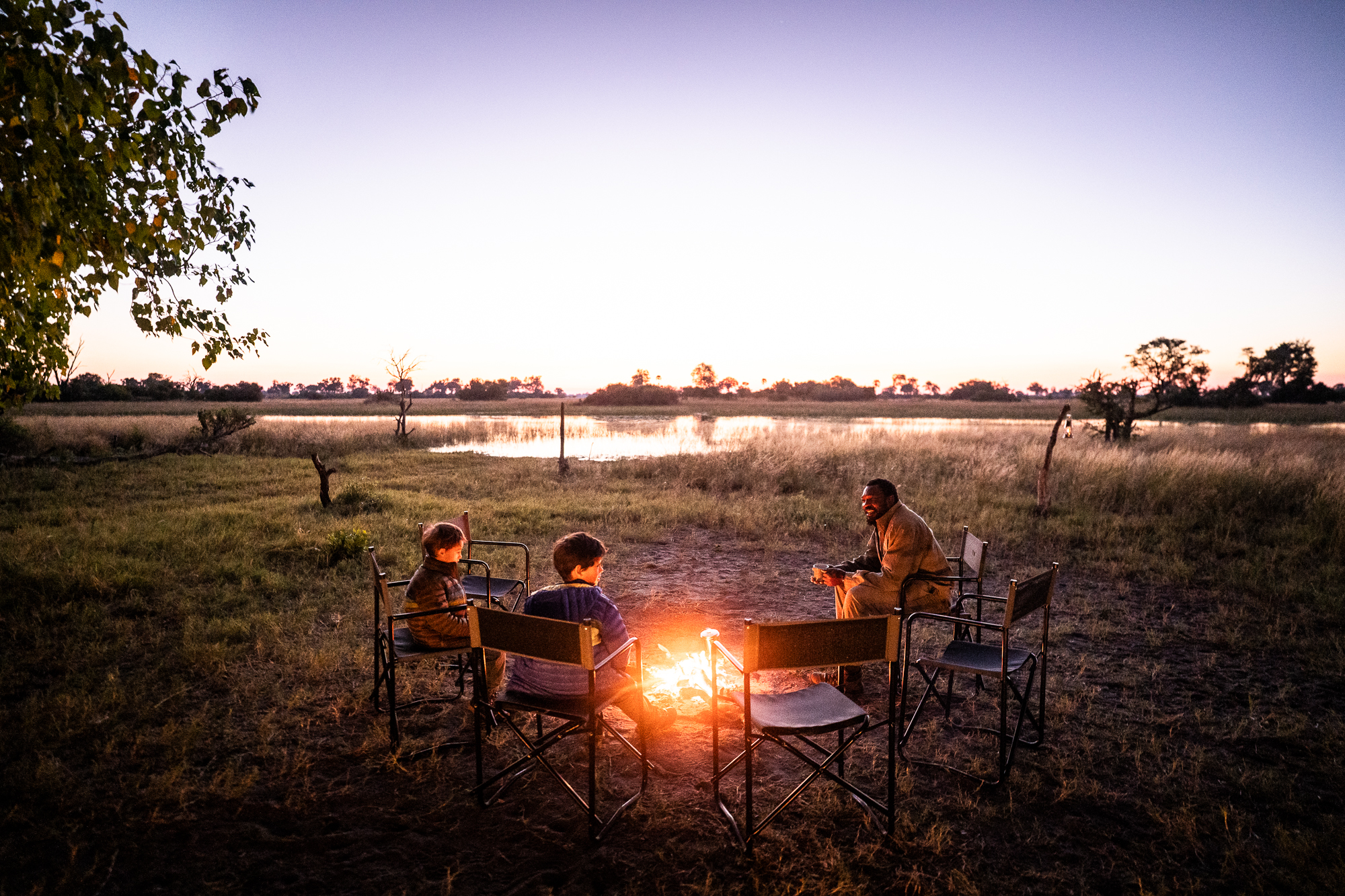

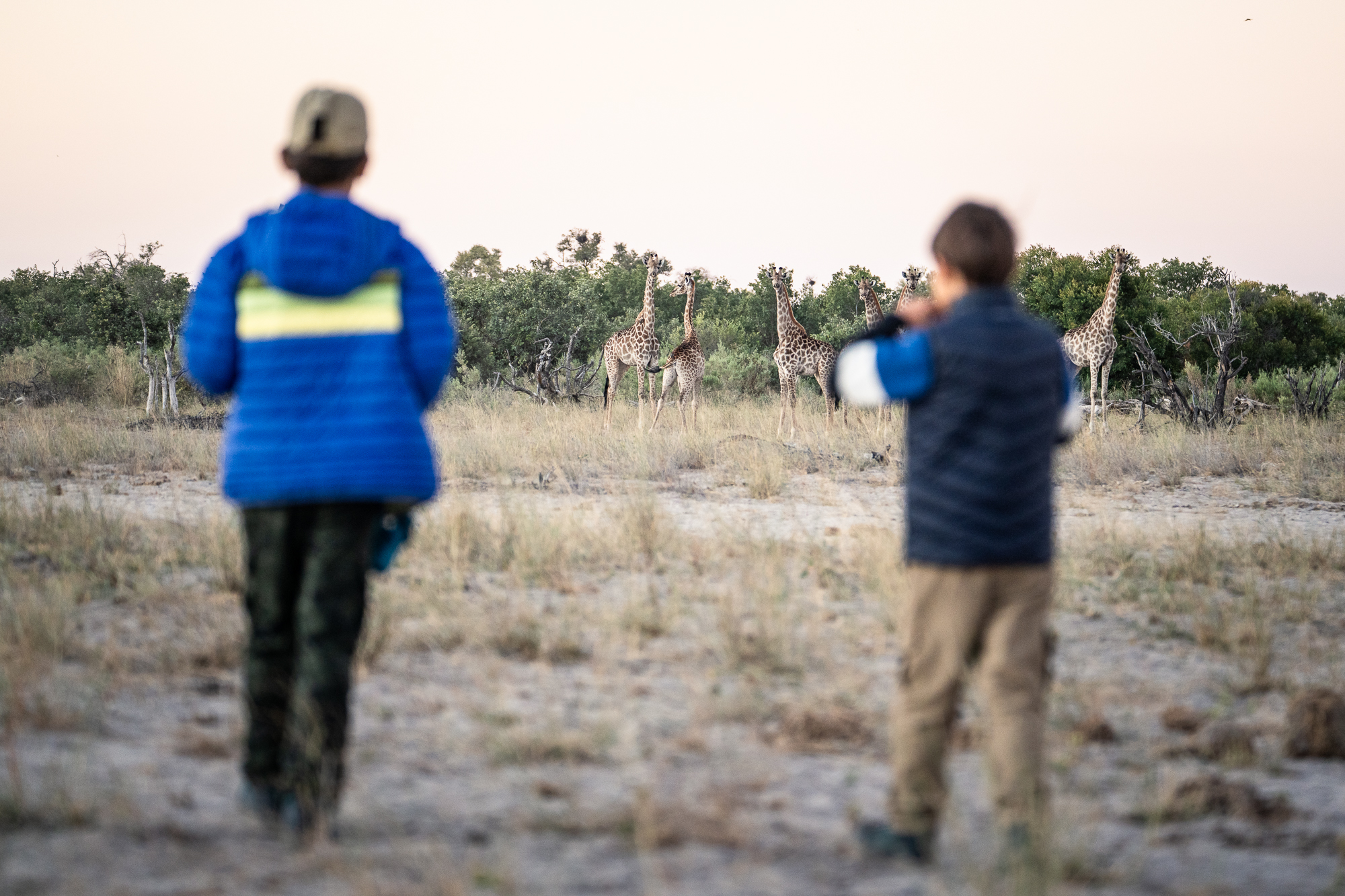
As both a parent and experienced guide, what do you think our clients should prioritise or seek out in their travels right now – what experiences feel most valuable or transformative to you at this stage of life?
A little while back I wrote in my notebook that one of the main reasons we travel is to interrupt patterns. When we visit the Eiffel Tower on a holiday, for example, it briefly disrupts our daily routine in a place — a nice, but fleeting, postcard moment that is unlikely to have a lasting impact. The pattern gets interrupted very briefly, then quickly returns to its original state.
For true transformation (a word that is often misused and abused in our industry), we need a more significant pattern interruption, and it’s unlikely to happen at ultra-luxe camps with gold taps. There’ll be slight change, of course, but to genuinely transform, we need to be brave and go beyond our initial comfort zone.
I recently guided a family on a trip that combined Nhoma Camp in the northeastern corner of Namibia on the communal land of the Ju|’hoan San and Beagle Expeditions in the Okavango Delta in northern Botswana. It was in parts a most challenging trip. We had weather issues and a few other safari niggles, but we pulled through, and the kids were extraordinarily happy and didn’t want to leave. Although it wasn’t endless seamlessness ease, it’s now the journey that resonates most with the family because it significantly interrupted their daily patterns.
So, what type of experiences should we prioritise right now? Those that interrupt patterns and help us relinquish control of our daily lives, allowing us to be fearless in our adventures. That’s where real transformation happens — not just marketing transformation, but the genuine kind.
We hope you enjoyed this interview and if anything shared here by Kyle resonates and you’d like to discuss travel plans, please do get in touch.
